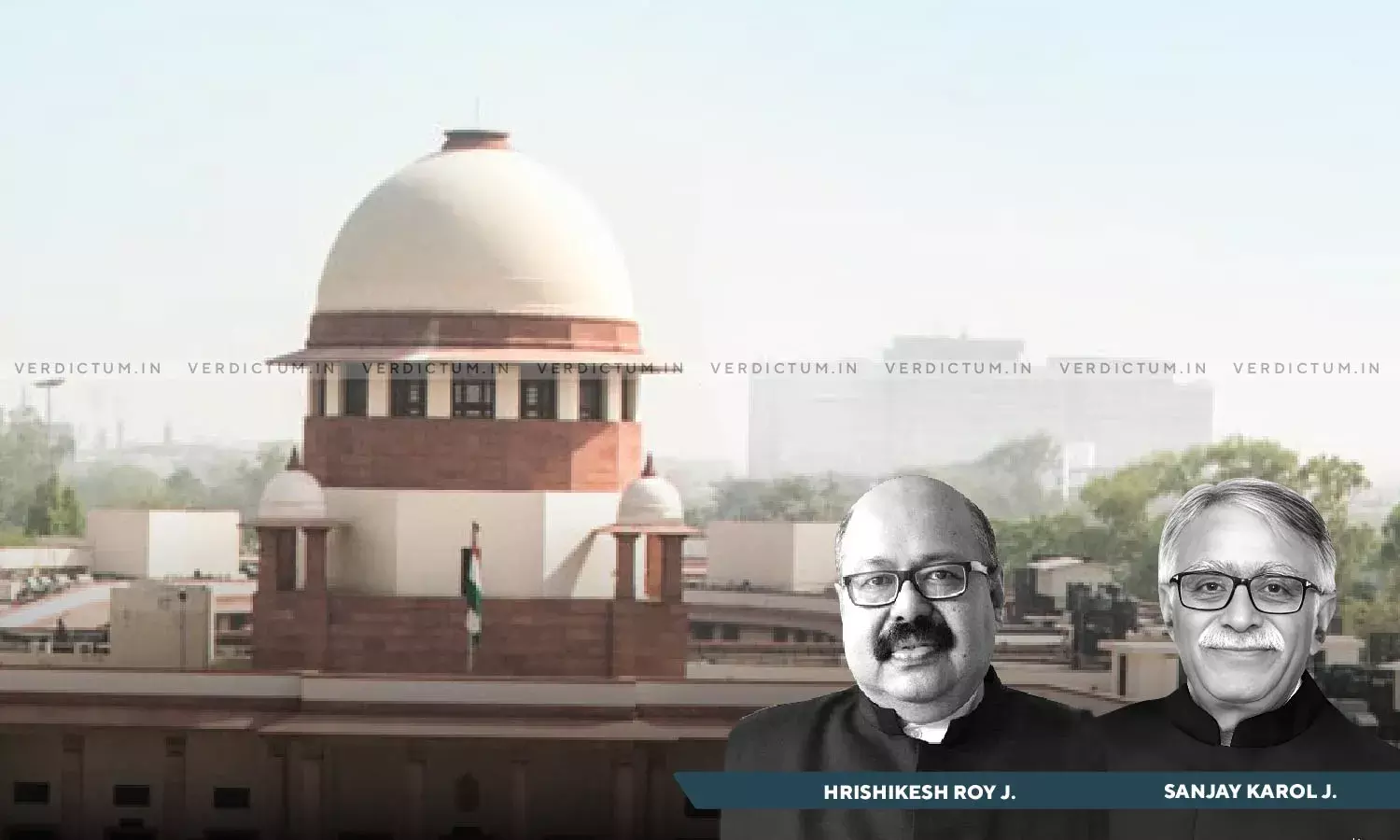Courts Have Power To ‘Mould Reliefs’ In Civil Matters Only When There Is A Subsequent Event: Supreme Court Reiterates

The Supreme Court while reiterating the well-settled principle has observed that in civil matters, courts have the power to mould the relief only in exceptional circumstances where there is a subsequent event or changed circumstances.
The bench referred to the judgment in Om Prakash Gupta v. Ranbir B. Goyal, (2002) 2 SCC 256 that laid down the conditions on which the principle of ‘moulded relief’ can be applied by Courts. The Apex Court upheld the judgment reversing the judgment granting a declaration of title and possession of the defendant in a suit, without any such claim by the defendant.
While noting that in the Civil Suit the First Appellate Court declared title in favour of a party when it never claimed such relief, a two-judge bench of Justice Hrishikesh Roy and Justice Sanjay Karol observed, “…The suit was filed by the plaintiff seeking declaration and injunction and the Appellate Court after dismissing the suit could not have then issued the declaration of title and possession, in favour of the defendant, particularly when the defendant never claimed any such relief from the Civil Court. It is well-settled in law that the principle of moulding of reliefs could at best be applied as an exception”.
The appellants in the matter were the legal heirs of the original defendant while the respondents were the legal heirs of the original plaintiff. In the original suit between the parties, the plaintiff inter alia had sought- to declare that he is the absolute owner in possession of the Scheduled property; permanent injunction restraining the defendant, from interfering with plaintiff’s peaceful possession and enjoyment of the suit property.
The plaintiff entered into a sale deed with the land owner of the scheduled property, and thus his case was based on the sale agreement and the registered sale deed of the property. While the pleaded case of the defendant was that the original owner had executed an absolute sale deed after receipt of substantial sale consideration but since the vendor did not turn up for registration, the registration of the sale deed was done under Section 73 of the Registration Act.
However, the suit came to be decreed by the Civil Judge where it concluded that the plaintiff has proved the execution of the agreement and also the subsequent sale deed, and since the land was already sold the defendant, could not have inured any benefit to the buyer. The suit was accordingly decreed against the defendant declaring the plaintiff to be the owner in possession of the suit property. An injunction order was also issued restraining the defendant from interfering with the plaintiff’s peaceful possession and enjoyment of the suit property.
On appeal before the District Judge court, dismissing the suit for declaration for title and for permanent injunction it upheld the transaction in favour of the defendant, holding that the defendant was entitled to possession of the property from the plaintiff. Interestingly, the plaintiff was additionally directed to hand over the possession to the defendants, however, the defendants never sought any declaration as to the title.
Pursuant to which, the aggrieved plaintiff then moved the High Court to challenge the Appellate Court’s judgment under Section 100 of the Code of Civil Procedure, 1908.
Now, the question before the Court was whether the First Appellate Court was correct in reversing the judgment and decree of the Trial Court by ignoring the earlier sale deed in favour of the plaintiff and whether the District Judge could have directed the plaintiff to deliver the possession of the suit property to the defendant, in the suit filed by the plaintiff.
The High Court then considering the fact that the vendor categorically denied the execution of sale deed in favour of the defendant and the evidence of the defendant that led to show plaintiff was in possession of the suit land, granted relief to the plaintiff while allowing his appeal and setting aside the judgment of the Appellate Court.
The bench thus noted, “As noted by the High Court, the Appellate Court failed to note any subsequent facts or law for granting Declaration. More surprisingly even while noticing that the plaintiff is in possession of the suit land, the learned District Judge as the Appellate Court ordered the plaintiff to handover possession of the suit land in favour of the defendant”.
As per the judgment in Om Prakash Gupta’s case, the conditions under which the court can mould the reliefs reads: “11. The ordinary rule of civil law is that the rights of the parties stand crystallised on the date of the institution of the suit and, therefore, the decree in a suit should accord with the rights of the parties as they stood at the commencement of the lis. However, the Court has power to take note of subsequent events and mould the relief accordingly subject to the following conditions being satisfied: (i) that the relief, as claimed originally has, by reason of subsequent events, become inappropriate or cannot be granted; (ii) that taking note of such subsequent event or changed circumstances would shorten litigation and enable complete justice being done to the parties; and (iii) that such subsequent event is brought to the notice of the court promptly and in accordance with the rules of procedural law so that the opposite party is not taken by surprise.”
Cause Title: Shivanna & Ors. v. B.S.Puttamadaiah (Dead) Through Lrs.
Click here to read/download the Order

